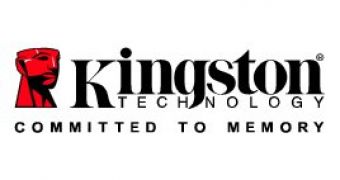Although already a leader in memory-solution development and a flash-based-device supplier, Kingston seems to want a larger share of the market. Normally, when a company wants to expand and has the resources to do it, one of the first moves would be considering which facilities can be expanded or if any new ones can be built in a timely and budget-friendly manner. This does not seem to be Kingston's strategy, however, as the memory maker decided to allow third-party suppliers to manufacture its products, instead.
According to Industry sources, Kingston allegedly has a current rate of DRAM chip consumption of 80 to 100 million per month, and its monthly shipments of NAND flash memory devices border on 20 million. The companies targeted by Kingston, according to Kingston Co-Founder David Sun (Digitimes says), are the Taiwan-based Panram International and Orient Semiconductor Electronics (OSE).
OSE is supposedly going to manufacture Kingston NAND products, whereas Panram will begin to make DRAM memory modules for the consumer market. This move will not influence Kingston's own production capacity, but the company's market share will increase according to the success of its outsourced products.
It is still unclear if the products produced by OSE and Panram will equal, performance-wise, those made by Kingston. Nevertheless, even though the memory maker mostly relied on its own production in the past, it teamed up with Intel in 2008 in order to ensure that its lineup of solid-state drives would be of the highest quality. How well the two manufacturers have succeeded remains to be seen.
Kingston's decision may have been influenced by the economical challenges currently facing all aspects of the industry. Not only that, but the company also has to cope with short-term market challenges, which will now be easier thanks to the increased supply of DRAM and flash devices attained through this outsourcing.

 14 DAY TRIAL //
14 DAY TRIAL //